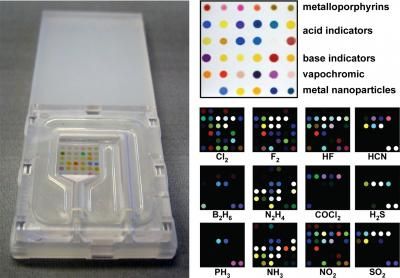New UNC experiments show very weak chlorine solutions can kill noroviruses
chlorine solutions much weaker than previously believed can still be used to kill more than 99 percent of noroviruses, the chief cause of outbreaks of gastrointestinal illness around the world, a new University of North Carolina at Chapel Hill study concludes.
Researchers discovered for the first time that dilute solutions of hypochlorous acid, or free chlorine, as low as 200 -- or even 20 -- milligrams per liter will completely inactivate noroviruses on surfaces such as stainless steel and ceramic tile.
Dr. Mark D. Sobsey, professor of environmental sciences and engineering at the UNC School of Public Health, and postdoctoral fellow Dr. Geunwoo Park conducted the research. They also found that the dilute chemical worked quickly -- in five minutes or less.
"This is good news since noroviruses are the leading cause of viral gastroenteritis," said Sobsey, director of the school's Environmental Health Microbiology Laboratories. "They have caused countless outbreaks of gastroenteritis in health-care facilities, schools, food establishments, hotels and resorts and on cruise ships."
Decontamination of affected facilities can prove difficult since the viruses persist on environmental surfaces and are resistant to some widely used sanitizers, he said. And they are highly infectious even at low doses.
Most read news
Organizations
Other news from the department science

Get the chemical industry in your inbox
By submitting this form you agree that LUMITOS AG will send you the newsletter(s) selected above by email. Your data will not be passed on to third parties. Your data will be stored and processed in accordance with our data protection regulations. LUMITOS may contact you by email for the purpose of advertising or market and opinion surveys. You can revoke your consent at any time without giving reasons to LUMITOS AG, Ernst-Augustin-Str. 2, 12489 Berlin, Germany or by e-mail at revoke@lumitos.com with effect for the future. In addition, each email contains a link to unsubscribe from the corresponding newsletter.

























































